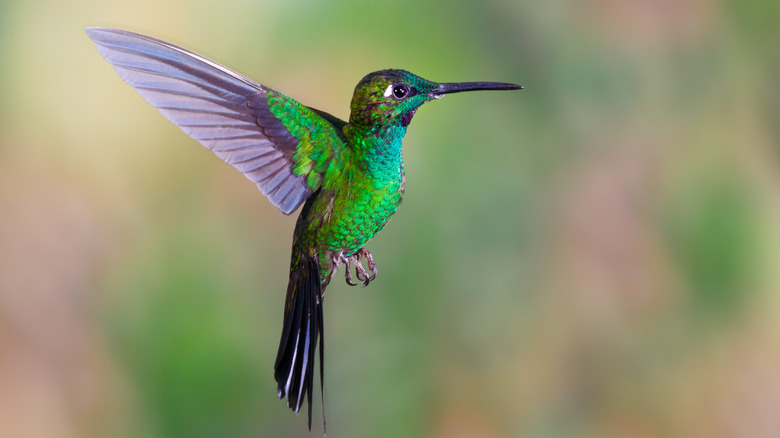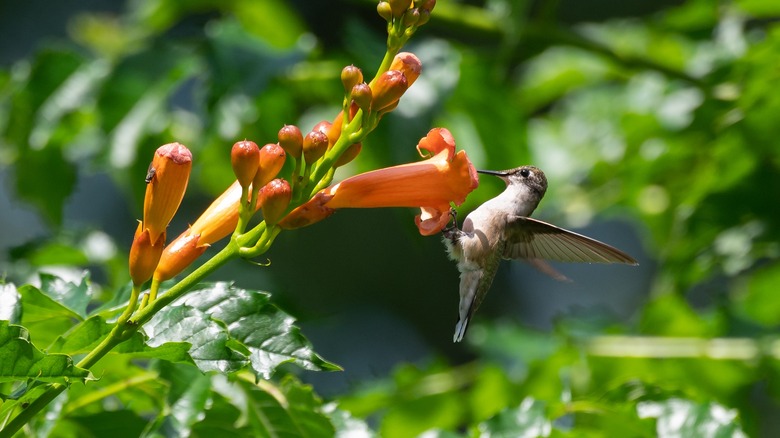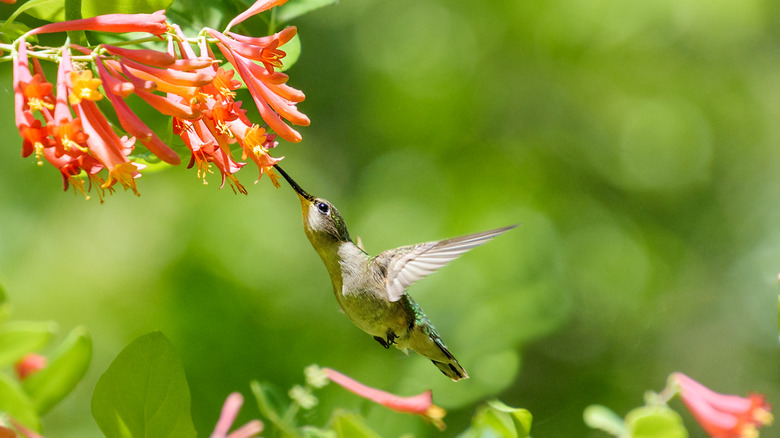This Musical-Sounding Flower Adds Color And Attracts Hummingbirds To Your Yard
Who doesn't want to attract hummingbirds to their yard? The diminutive little birds aren't just beautiful, they're also fascinating to watch. There are a variety of ways to encourage hummers to visit your yard, including with feeders, but one of the best options is to plant the beautiful and native trumpet vine.
Hummingbirds are native to the Americas, and you can find them in most of the continental United States. The beautiful little birds need to eat almost constantly to have enough energy to fly, so they tend to stay close to food sources. Hummingbirds aren't just fun to look at though, they can also help improve your garden by eating pests, including mosquitoes and spotted wing drosophila. This gives you another reason to attract hummingbirds to your garden. Hummingbirds are attracted to the colors red and orange and prefer flowers with a deep tubular shape, so it's no surprise that the trumpet vine is a favorite of theirs.
Growing trumpet vine
Trumpet vine (Campsis radicans), sometimes called trumpet creeper or hummingbird vine, is a stunning climbing vine native to the southeastern United States. Looking at the trumpet-shaped flowers, it's not difficult to see how it earned its name. The vine's bright reddish-orange flowers are the perfect shape and color to attract hummingbirds. Perennial in zones 4 through 8, trumpet vines thrive in well-draining soil but are also relatively drought tolerant. They can handle both full-sun and part-shade but generally flower best in full-sun.
Trumpet vines grow quickly and can easily reach 30 feet in both height and width. In addition to attracting hummingbirds, it is also popular with butterflies and bees, making it a good option for butterfly gardens. Trumpet vines can also be beneficial for erosion control and are even deer-resistant. Just be sure to wear gloves when pruning your trumpet vine, as the sap can be irritating.
Downsides and alternatives to trumpet vine
Trumpet vine may sound like a perfect plant, but it is not without its drawbacks. It is so fast growing it is considered a weed in some areas, and its aerial roots can attach to buildings, causing damage. As long as you have something that the vine can climb without causing damage and don't mind regular pruning, it can be a great option for adding a hummingbird's favorite color to your yard.
Some trumpet vines, including Indian Summer (Campsis x tagliabuana 'Kudian'), stay more compact and are less aggressive, making them a more practical option for gardeners who want to attract hummingbirds but don't want a vine taking over their yard. Another great option is trumpet honeysuckle (Lonicera sempervirens), another North American native with red trumpet-shaped flowers. Trumpet honeysuckle, like trumpet vine, is a big hit with hummingbirds, and while it is fast growing, it is less aggressive than trumpet vine.


